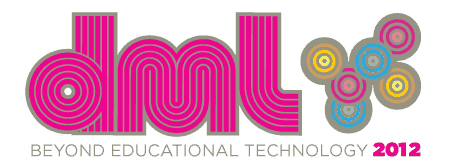MRT: A culture of sharing: Exploring ways to support connections among designers of digital media
A young boy wants to make an interactive birthday card for his friend, but isn't sure what might be possible, so he looks online for examples of cards that other young people have created. A girl wants to design the ultimate side-scrolling game and she builds her project using another designer's side-scrolling project as the base. Three young people team up to create an interactive media tribute to Halloween, and they recruit 20 others to help build the project. A boy creates a logic puzzle and thinks that it needs improvement, so he posts it online for others to try and give feedback.
Each of these scenarios highlights how a culture of sharing makes it possible for young designers to create artifacts that might otherwise be unrealizable and supports their development as designers of digital media. In this workshop for educators and researchers, we will explore two central questions - What can a culture of sharing for digital media designers look like? and How can we support this culture of sharing? - using Scratch (http://scratch.mit.edu), an authoring environment and online community, as a motivating example. There are more than 2 million projects on the Scratch website, and each day members (mostly ages 8 to 16) upload approximately 2500 new Scratch projects to the website - on average, two new projects every minute. The collection of projects is incredibly diverse: interactive newsletters, science simulations, virtual tours, animated dance contests, interactive tutorials, and many others.
The workshop will begin with a quick, hands-on Scratch activity in which participants experiment with two forms of sharing in digital media design: collaboration (developing a project with a partner) and remixing (building on someone else's work). We will use this concrete experience to start group discussions around the two central workshop questions. With respect to the first question (What can a culture of sharing for digital media designers look like?), we will discuss manifestations of sharing culture by examining the dimensions of: (1) participants, including peers, parents, and teachers, (2) activities, including inspiration, creation, collaboration, and reflection, and (3) settings, including online and face-to-face, formal and informal. With respect to the second question (How can we support this culture of sharing?), we will discuss strategies for supporting sharing culture, as well as factors that act as barriers to sharing (such as counternarratives about "stealing" and "copying").
The workshop will be led by two members of the MIT Scratch Team, Karen Brennan and Ricarose Roque. Karen is a 5th-year PhD student, who studies how learning communities support computational creators. Ricarose is a 2nd-year Master's student, who designs contexts that support Scratch online community members to create collaboratively.



